Publishing a book often brings up frequently asked questions either about me personally or how I write. If you are curious or are a writer yourself, these answers might help you.
How did you get published?
Truthfully, I despised the whole process. After a lot of editing, I sent Wander to over one hundred agents and various publications and felt the life draining from me with each impersonal rejection. It was suicide for my confidence and I needed to stop looking for someone to say yes and just give myself the yes.
I ultimately decided to self-publish and that whole process was incredibly difficult since I did not know what I was doing. Many copies came to me with format errors. I owe a lot of that process to my husband with the publishing process. I just wanted to rip my hair out and scream into a pillow.
On the bright side, I learned a lot for next time. Many people are afraid of rejection and I drowned myself in it to have my dream of publishing a book come true. My advice to others like me is to stay strong. You don’t need someone else to say yes to you. You need to trust in yourself and your story.
How do you write what you consider a good character?
Throughout writing education, teachers talk about “finding your own style.” I find it is the same way with characters.
This is a little silly, but imagine being in a crafts store. Every writer has an inner craft store with different ingredients based on their likes, dislikes, and experiences. With whatever is available, they make their characters. Some are cut out of the same cloth but then end up totally different once they endure a different narrative. Some are built out of fears, others come from what you wish you could be, and there are those that can even be inspired by a single image or word.
My style is that I love flaws. They are everything to me for my characters. Without them, I wouldn’t consider them as good or mine. Your style may be different though.
I have characters but no plot, what do?
Plots may be seen as very important but really its just the gas pedal of the story. Most readers these days are more interested in the characters than the plot itself. In that sense, it makes sense to come up with characters first. At least that is how I function.
The key to the plot is what motivates your already-made characters. Your readers need to buy into their motivation to get into the plot. Their drive is the key to this question. For example, Wander had nothing but Masu in her life. So of course his disappearance became a driving force of the plot.
How do I end my story?
I am definitely not the best writer to answer this question. Look how thick my book is!
A piece of advice I hear that I like is that the ending should feel natural. We live in a world where endings often feel unnatural, so one would hope books are more merciful. You don’t have to tie up every little thing, in fact, I’d advise you not to so that there is some exciting mystery left for the readers.
Definitely have a vague idea of an ending before you start writing. The more you write, it’s likely the ending will get more clear. That’s what happened with Wander.
How do you feel about outlines?
The closest thing I’ve done to an outline is writing a list of everything I wanted to happen in the book. Once I did that, I took every piece I wrote and put it on the order I wanted it to happen in.
That’s it, and it helped a good deal. It was quick and easy and set a path for the book. After that though, outlines were no more. I wrote the entire book from beginning to end.
Like most answers, it definitely depends on the writer.
How do you not get distracted?
I’m obsessive, and that’s the real answer. With Wander, I could write for hours and hours. I loved it and truly believed in it. Unlike what a lot of other writers say, I never had a “space” where I wrote Wander. I was all over the place with my laptop from college campuses to my living room. The idea is romantic though, I would love a secret grove to write in.
Instrumental and electronic music helps me focus a lot. Depending on the scene, I would change music to something more emotional, unsettling, or calming.
How do I stop doubting my writing?
Doubt has never gone away for me. As mentioned with the publishing question, I really did a number on myself to try to get published traditionally.
I doubt myself because life often feels like a contest. But I never let that influence my writing because the idea of success isn’t black and white. A nationally known writer may have thousands of people who read their book and then forget about it after a week. A local writer with just twenty readers may have changed someone’s entire outlook on life.
You don’t need to get rid of doubt. Doubt can even be helpful. Some writers are too confident and won’t listen to anyone and that ultimately hurts them. Just don’t let it rule your writing.
How do I promote my writing?
I’m in the midst of still figuring this piece out. I was a very annoying writer as a child and made everyone read my work. As an adult, I am the opposite because I’m scared of driving others away by being too pushy.
In terms of how I am working on this, I am trying to have an online presence (like with this blog post). I made an ad for Wander with Bookbrush, and that was fun. I use Facebook advertising to spread that ad around.
Look locally for writer meet-ups and bookstore events, which is something I still need to do.
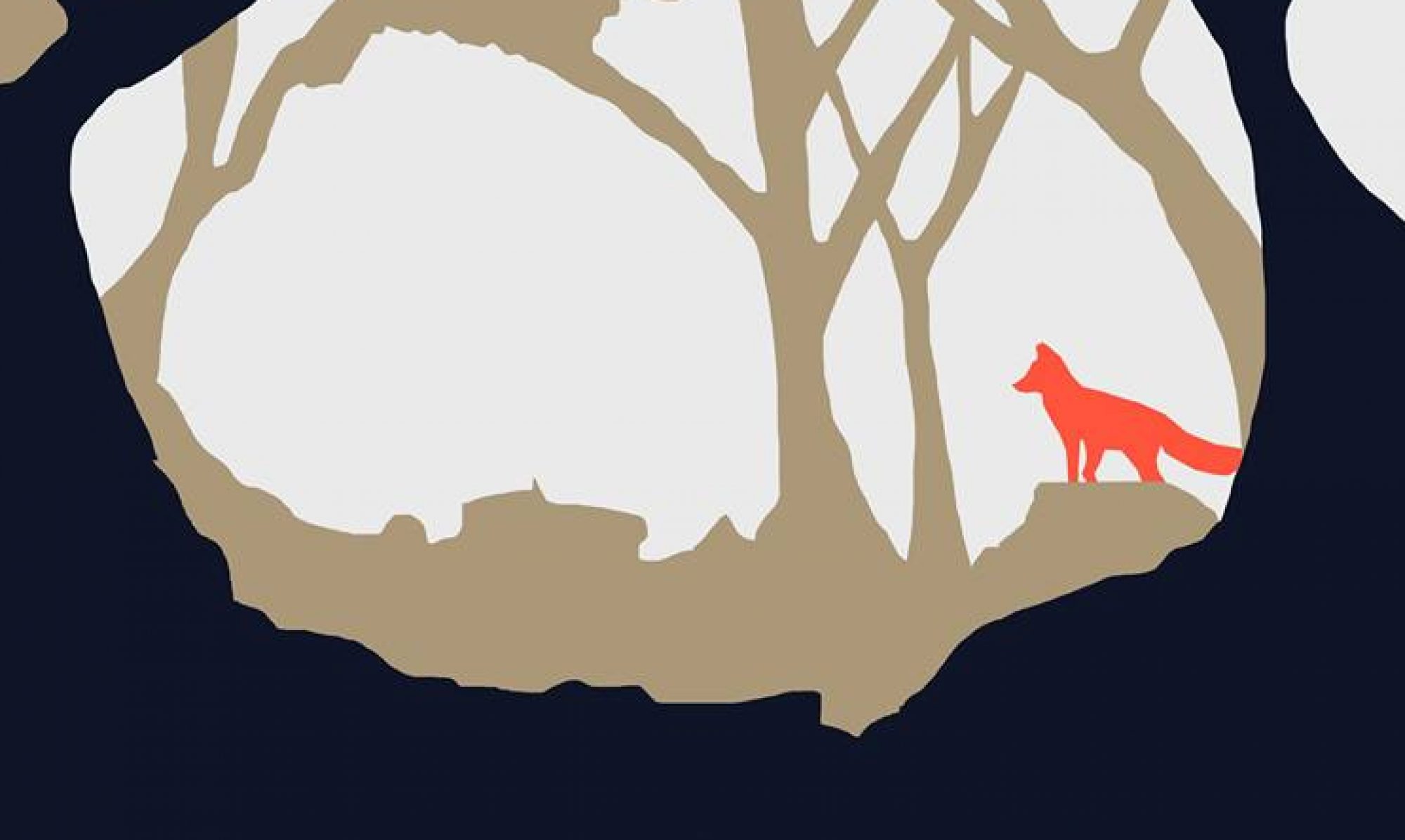
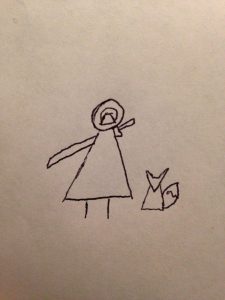 The main character of my first book, Wander, changed a ton since she was first thought up.
The main character of my first book, Wander, changed a ton since she was first thought up.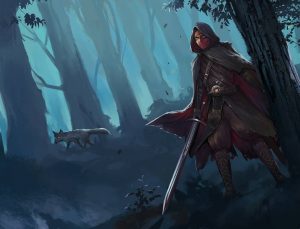 family or way to survive on their own. I decided Wander would be wind-born and that dictated her entire personality to be unique. She was a product of her situation and environment. Like most kids, she had a natural curiosity and a lot of love to give but the world was cruel to her. Still, that did not make her utterly hardened either. I wanted to keep her soft since that was a part of her that was so endearing to me, but I wanted to give her an edge as well.
family or way to survive on their own. I decided Wander would be wind-born and that dictated her entire personality to be unique. She was a product of her situation and environment. Like most kids, she had a natural curiosity and a lot of love to give but the world was cruel to her. Still, that did not make her utterly hardened either. I wanted to keep her soft since that was a part of her that was so endearing to me, but I wanted to give her an edge as well.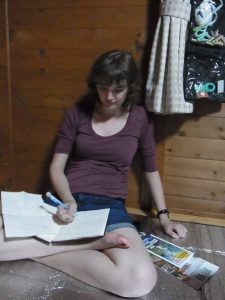
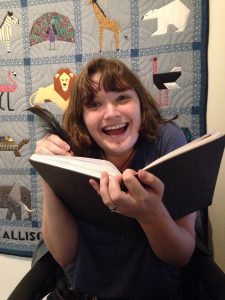 website I will not name (you are not reading it!). They wrote a message that they remembered it from 13 years ago and went looking for it again. This was jaw-dropping for me, who was trying to get Wander published at the time. It made me wonder if the height of my writing career was writing casual fanfiction as a preteen for other preteens. Will Wander get as much attention? For my own sanity, I will not delve too deep into that paranoia.
website I will not name (you are not reading it!). They wrote a message that they remembered it from 13 years ago and went looking for it again. This was jaw-dropping for me, who was trying to get Wander published at the time. It made me wonder if the height of my writing career was writing casual fanfiction as a preteen for other preteens. Will Wander get as much attention? For my own sanity, I will not delve too deep into that paranoia.